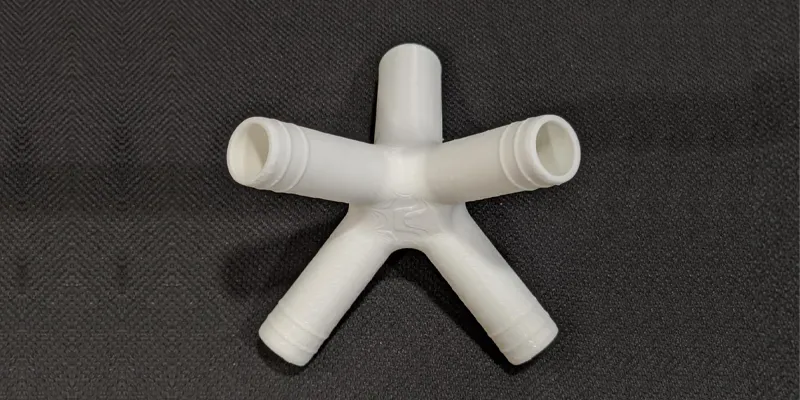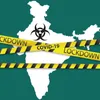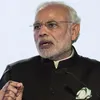Coronavirus crisis: This tiny, inexpensive device may be able to save thousands of lives
Amid the coronavirus pandemic and the resultant ventilator crisis, a volunteer-driven initiative is working towards tackling India’s critical shortage of the life-saving machines.
Even as the number of coronavirus cases continues to rise across the world, India, along with other countries, is staring at a critical shortage of life-saving ventilator machines.
To understand the relationship between the novel coronavirus and ventilators, it is important to look at how the virus affects the human system. The coronavirus attacks people’s lungs, making it difficult for some patients to breathe. In such a scenario, ventilators become a critical tool to keep these patients alive. These life-saving machines deliver air and oxygen to the lungs through a tube placed in the windpipe.

In India, the demand for ventilators is expected to go up to around 1 million or 10 lakh by July 2020, while at present the availability is between 30,000 and 50,000, according to a report released by researchers from Johns Hopkins and Princeton University last week.
While the Narendra Modi government is putting in efforts to ramp up the ventilator count, it is still likely to run into a shortage.
On Friday, the Ministry of Health and Family Welfare announced that the government has engaged a public sector unit (PSU) to supply 10,000 ventilators, and is commissioning the production of another 30,000 ventilators with Bharat Electronics Ltd (BEL).
A volunteer-driven solution to the crisis
A volunteer-driven initiative started by Pankaj Gupta, an entrepreneur and investor, is working with more than 200 volunteers (including several IIT, NIT, BITS alumni) towards solving the problem that could save “thousands of lives”.
Pankaj is the founder of EthAum Venture Partners, and is himself an NIT (and Rochester University, New York) graduate. He started the initiative to tackle the COVID-19 or novel coronavirus pandemic through an appeal on micro-blogging site Twitter, after which people started joining the cause.
“Currently, we have 200 plus volunteers including doctors, 3D Printers, investors, policymakers, entrepreneurs, and product managers, who are supporting the initiative with brainstorming, product design, prototyping, testing, documentation etc.,” says Pankaj.
The group, which calls itself the COVID India Initiative, has been testing a tiny device that can fit into the human palm to optimise the use of ventilators, in times of emergency.
The simple mechanical device is a splitter that can evenly distribute the oxygen flow from a single ventilator to four patients. The 3D-printed prototype is currently being tested in hospitals across the country. A similar device called Vesper or ventilation expansion splitter received US Federal Drug Administration (FDA) approval last week for emergency use.

The ventilator splitter prototype created by COVID India Initiative
Breaking down the concept behind the splitter being tested in India, Pankaj explains: “A single ventilator can support a body weight of 280 kg, but in general, most people are in the 60-80 kg bracket. So, you are utilising only about 25 percent of the ventilator’s capacity.
“In a desperate situation, when people need oxygen right away or the patient will die, what will you do? We are trying to address that problem by creating a mechanical device that distributes oxygen through four different channels equally to go into four different people’s lungs through pipes,” he says.
The group has done a few rounds of testing at Victoria Hospital in Bengaluru, Rajasthan Hospital in Jaipur, and SKIMS Hospital in Srinagar. Tests are also being conducted at Apollo Hospitals, Hyderabad.
Dr Talib Khan from SKIMS Hospital, Srinagar, says, “Splitting ventilators could be a good potential solution during times of crisis. We did inflated balloon testing by splitting one ventilator in four channels. Would love to see even flow and distribution of oxygen in the future version.”
According to Dr Raghavendra BS from Victoria Hospital, who was involved in the testing of the device at the Bengaluru hospital, the wall thickness of the splitter could be increased for prolonged usage. “We tested the splitter and found an even distribution of oxygen among the four channels. We recommended the team to increase wall thickness of the splitter so they can last prolonged usage.”
The 3D-printed prototypes cost Rs 100 a piece. But the group does not want to take the 3D printing route for mass production. “Once the design is finalised, we want to design for injection moulding and mass manufacture at an injection moulding facility. The cost would likely come down to Rs 50 per piece then,” says Pankaj.
The group has been in touch with the Government of India through its Invest India initiative regarding the development of the splitter.
“Invest India is very excited, and they understand ventilators will be in shortage soon. They have been helping us a lot by connecting us with various stakeholders like Apollo hospitals, 3D Printers, etc.”
Free for hospitals
According to Pankaj, the volunteer group does not plan to charge hospitals nor will it file any design patents or intellectual property rights (IP) for the splitter. For funding the mass production of the device, it is talking to Invest India and also hopes to get contributions from partners of Sequoia Capital, Accel Partners, Lightspeed Ventures, Matrix Partners, and Jungle Ventures, investing in their personal capacity.
In the meantime, the government has also asked automobile manufacturers to use their facilities to produce ventilators to boost the country’s capacity of the life-saving machines. “Automobile manufacturers have been asked to manufacture ventilators and they are working towards this end,” the health ministry announced in a tweet on Monday.
Carmakers chip in
India’s largest carmaker Maruti Suzuki on Saturday announced that it will help scale up the production of ventilators in the country. Maruti Suzuki said it will manufacture 10,000 ventilators in collaboration with AgVA Healthcare, an approved manufacturer of ventilators.
Last week, Mahindra Group Chairman Anand Mahindra announced that Mahindra & Mahindra is working with an indigenous maker of ICU ventilators.
“These are sophisticated machines costing between Rs 5 to 10 lakh. This device is an interim lifesaver, and the team estimates it will cost below Rs 7,500,” Anand Mahindra had tweeted.
In India, the novel coronavirus has till now taken 29 lives and infected more than 1,000. Across the world, it has killed more than 33,960 people, and infected over 7,21,900.
The World Health Organisation (WHO) declared the novel coronavirus a global pandemic on March 11.
(Edited by Megha Reddy)










